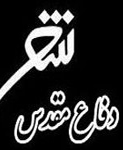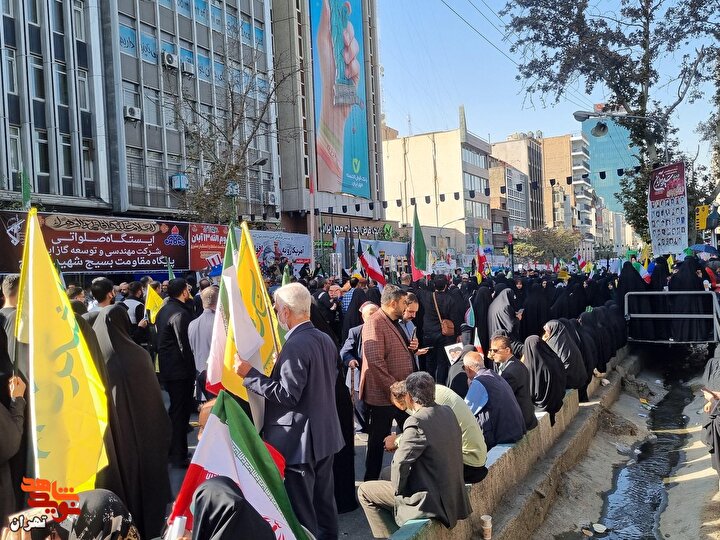
Shahram Mir Shakkak:
The Poetry of the sacred war has not been duly acknowledged
TEHRAN, (SCIB) - All of us is inevitably involved in war and all of us think that the sacred war is sacred because our home country has always been dear for us.

According to the shahed base reporter, "Shahram Mir Shakkak," a poet and critic, has said this in a session to investigate and assess a collection of poems on the sacred war called "A bloody Cough of a Gun in the Wind" [Sorfeh Tofangi dar bad] authored by "Morteza Heidari Ale Kasir" and followed: unfortunately the Poetry of the sacred war has not been duly acknowledged these years. He added that it was the case with the other genres: the cinema of the sacred war is afflicted with slogan and remained in most of the cases in the atmosphere of the war munitions. A large part of our literature is also dealing with war which is in my idea not pleasing.
This poet considered the major problem of Morteza Heidari in the collection of called "A bloody Cough of a Gun in the Wind" [Sorfeh Tofangi dar bad] to be lack of ideology and this has caused him come to the surface of the issues with regard to his poetic imagination.
About the problems of this collection, he said: one of the problems of the collection is its having problems with the creation of the combinations. The other problem of this collection is the gap between meanings and images in way that we feel the images are haphazard and can not have a unity of effect.
Mir Shakak Continued: In this collection, there are a kind of poesy, lyricism and emotion that make it different from other sacred war collections. The poet of this collection avoids complications and speaks his meanings and poetry easily and clearly although there are some problems.
This critic added in continuation: The poet of this collection is a lover and whenever he has gone to lyric expressions we are offered very good poetry. In addition, expectation shows itself clearly and we are expectants in most the poems of these collection and this is obvious especially in the last poem of this collection.
Mir Shakkak said there are not symbolic expressions and ambiguous narrative and stated that: it is while the ambiguous narration is a very important part of our poetry and it is seen in the poetry of the contemporary lyricists.
He added it the labyrinth narrative that lets the poet to maneuver in his poetic ambience, although we can see some examples of this narration in this collection which is called "A bloody Cough of a Gun in the Wind" [Sorfeh Tofangi dar bad].
In this session Mohammad Reza Shalbafan said: the imagination of the poet is a collection of concrete and abstract. Of course the poet knows that our time has more affinity with concreteness i. e. objectivity in poetry and this is why some poetry begins with some concrete and objective beautiful verse lines but in what follows the poetry moves towards abstractness. This inclination towards abstractness happens by the use of irony, and sometimes by the use of creating ambience and images.
At the end Shalbafan continued: all in all I have seen the collection as a success since in many of the poems a clear ambiguity comes along with the poems and the clear and straightforward language of the poems makes the poems more attractive. We will witness better poetry and a more able poet if he is not limited in his topics / subjects although this ambiguity has caused the collection to be outstanding among other collections on the sacred war.
According to the shahed base reporter, "Shahram Mir Shakkak," a poet and critic, has said this in a session to investigate and assess a collection of poems on the sacred war called "A bloody Cough of a Gun in the Wind" [Sorfeh Tofangi dar bad] authored by "Morteza Heidari Ale Kasir" and followed: unfortunately the Poetry of the sacred war has not been duly acknowledged these years. He added that it was the case with the other genres: the cinema of the sacred war is afflicted with slogan and remained in most of the cases in the atmosphere of the war munitions. A large part of our literature is also dealing with war which is in my idea not pleasing. This poet considered the major problem of Morteza Heidari in the collection of called "A bloody Cough of a Gun in the Wind" [Sorfeh Tofangi dar bad] to be lack of ideology and this has caused him come to the surface of the issues with regard to his poetic imagination. About the problems of this collection, he said: one of the problems of the collection is its having problems with the creation of the combinations. The other problem of this collection is the gap between meanings and images in way that we feel the images are haphazard and can not have a unity of effect. Mir Shakak Continued: In this collection, there are a kind of poesy, lyricism and emotion that make it different from other sacred war collections. The poet of this collection avoids complications and speaks his meanings and poetry easily and clearly although there are some problems. This critic added in continuation: The poet of this collection is a lover and whenever he has gone to lyric expressions we are offered very good poetry. In addition, expectation shows itself clearly and we are expectants in most the poems of these collection and this is obvious especially in the last poem of this collection. Mir Shakkak said there are not symbolic expressions and ambiguous narrative and stated that: it is while the ambiguous narration is a very important part of our poetry and it is seen in the poetry of the contemporary lyricists. He added it the labyrinth narrative that lets the poet to maneuver in his poetic ambience, although we can see some examples of this narration in this collection which is called "A bloody Cough of a Gun in the Wind" [Sorfeh Tofangi dar bad]. In this session Mohammad Reza Shalbafan said: the imagination of the poet is a collection of concrete and abstract. Of course the poet knows that our time has more affinity with concreteness i. e. objectivity in poetry and this is why some poetry begins with some concrete and objective beautiful verse lines but in what follows the poetry moves towards abstractness. This inclination towards abstractness happens by the use of irony, and sometimes by the use of creating ambience and images. At the end Shalbafan continued: all in all I have seen the collection as a success since in many of the poems a clear ambiguity comes along with the poems and the clear and straightforward language of the poems makes the poems more attractive. We will witness better poetry and a more able poet if he is not limited in his topics / subjects although this ambiguity has caused the collection to be outstanding among other collections on the sacred war.



